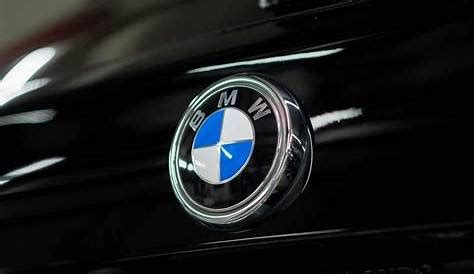When it comes to luxury vehicles, few brands command as much respect and admiration as BMW. However, even the most prestigious cars can encounter challenges, particularly when it comes to common errors that may affect performance and reliability. In this article, we delve into the top 10 BMW common errors and their solutions, empowering BMW owners with the knowledge they need to maintain their vehicles effectively. From understanding electrical issues and engine problems to addressing transmission errors and fuel system malfunctions, we’re here to guide you through resolving these concerns. Additionally, we’ll explore the importance of regular maintenance and software updates in preventing common issues, while offering proactive care tips to keep your BMW running smoothly for years to come. Discover how to enhance your driving experience and protect your investment with our comprehensive insights.
Understanding BMW Common Errors Before They Occur
Being proactive about your vehicle’s maintenance can significantly minimize the risk of encountering BMW common errors. Understanding the potential issues before they manifest allows owners to effectively implement preventative measures. Here are some key strategies to recognize and mitigate common errors:
Regular Diagnostics
Routine diagnostics can help you identify hidden issues before they escalate into significant problems. Investing in a quality OBD-II scanner can assist in early detection of electrical and engine errors.
Staying Informed
Join BMW owner forums or subscribe to newsletters to stay updated on emerging issues that other owners are facing. Knowledge about common issues can empower you to act before small problems become expensive repairs.
Routine Vehicle Maintenance
Maintaining a regular service schedule as recommended by BMW helps to ensure that all systems are functioning correctly. This includes oil changes, brake checks, and tire rotations.
Monitoring Warning Lights
The dashboard warning lights are your first line of defense against potential issues. If any warning lights appear, address them promptly to prevent them from leading to serious BMW common errors.
Listening to Your Vehicle
Pay attention to unusual sounds or behaviors from your BMW. Strange noises, vibrations, or changes in driving feel can often signal underlying issues that need to be addressed.
Using Quality Replacement Parts
When repairs are necessary, always opt for OEM (Original Equipment Manufacturer) parts. Using high-quality parts can prevent the recurrence of common errors caused by substandard components.
By implementing these strategies, BMW owners can foster a proactive approach to vehicle care, thereby reducing the likelihood of facing BMW common errors. Regular attention can lead to a smoother driving experience and longer vehicle lifespan.
Identifying Common Electrical Issues In BMW Models
Electrical problems are among the most frequent BMW common errors that drivers may encounter. These issues can range from minor annoyances to significant malfunctions affecting the vehicle’s performance and safety. Understanding how to identify these problems will help you address them promptly.
| Electrical Issue | Symptoms | Possible Solutions |
|---|---|---|
| Battery Drain | Unexpected battery depletion, dim lights | Test battery health, check for parasitic drain |
| Faulty Sensors | Warning lights on the dashboard, erratic behavior | Use a diagnostic tool to identify fault codes, replace sensors |
| Malfunctioning Power Windows | Windows not responding, unusual noises | Inspect fuses and switches, replace window motor if necessary |
| Lighting Issues | Inconsistent lighting, flickering headlights | Check for blown bulbs, test wiring connections |
| Ignition Problems | Engine not starting, abnormal sounds | Examine ignition system components, replace faulty parts |
Many of these electrical issues can be avoided with regular maintenance and inspections. If you notice any of these symptoms, it’s crucial to address them immediately to prevent more extensive damage to your vehicle.
Signs Of Engine Problems In BMWs To Watch For
Detecting engine issues early can save you from costly repairs and enhance the longevity of your BMW. Here are some key signs of engine problems you should be vigilant about:
- Warning Lights: The check engine light is often the first indication of engine trouble. If it lights up on your dashboard, don’t ignore it. A diagnostic check can pinpoint the exact issue.
- Unusual Noises: Listen for any knocking, pinging, or grinding sounds that weren’t present before. These noises may indicate serious engine problems.
- Loss of Power: If you experience a drop in acceleration or power when driving, it could signal an engine malfunction, often related to fuel delivery or ignition issues.
- Excessive Exhaust Emissions: Color and consistency of exhaust fumes can indicate engine problems. Blue smoke suggests oil burning, while black smoke could mean a rich fuel mixture.
- Vibrations or Shaking: Noticeable vibrations or shaking when the engine is running can indicate internal issues that need immediate attention.
- Increased Oil Consumption: A sudden rise in oil consumption levels often signals internal engine wear. Regularly check oil levels and inquire with professionals if you notice discrepancies.
- Overheating: An overheating engine may point to cooling system failures or serious internal engine issues. Keep a close eye on the temperature gauge.
Being aware of these BMW common errors can significantly mitigate risks and enhance your driving experience. If you notice any of these signs, it’s advisable to consult a mechanic specializing in BMWs to diagnose and rectify the issue promptly.
Transmission Issues: Common Errors And Fixes For BMW
Transmission issues are among the most significant BMW common errors that drivers face. These problems can lead to severe performance issues if not addressed promptly. Below are some frequent transmission-related errors and their potential fixes.
| Error | Signs | Possible Fixes |
|---|---|---|
| Delayed Shifting | Sluggish gear changes, high RPMs without acceleration | Check transmission fluid levels; replace or top off fluid if necessary. |
| Transmission Slipping | Unexpected movement between gears, warning lights | Inspect for leaks, consider a fluid change, or schedule a transmission service. |
| No Reverse Gear | Difficulty or inability to shift into reverse | Inspect the transmission linkage and adjust or replace as necessary. |
| Overheating | Burning smell, erratic shifting | Check for radiator or cooling system issues and consider adding a transmission cooler. |
| Fluid Leaks | Puddles of fluid under the vehicle | Identify the source of the leak; replace seals or gaskets. |
Being proactive about transmission maintenance can significantly reduce the occurrence of these BMW common errors. Regularly checking transmission fluid levels and staying attentive to changes in vehicle performance are key steps to preventing these issues from becoming more severe.
BMW Common Errors: How To Troubleshoot Overheating
Overheating is a prevalent issue among BMW vehicles and often falls under the category of BMW common errors. If you notice your BMW’s temperature gauge rising or see warning indicators on your dashboard, it’s essential to troubleshoot the problem effectively. Here are steps to help identify and address overheating issues:
- Check Coolant Levels: Begin by inspecting the coolant reservoir. Low coolant levels can lead to overheating. If the coolant is low, refill it with a mixture of antifreeze and water, but ensure the engine is cool before opening the cap.
- Inspect for Leaks: Look under your car for any signs of coolant leaks. Common areas to check include the radiator, hoses, and water pump. If you notice any leaks, they’ll need to be repaired to prevent further issues.
- Examine the Radiator: Ensure the radiator is clear of debris and functioning correctly. A clogged radiator can impede airflow, leading to overheating. If the radiator is dirty, consider a thorough cleaning.
- Evaluate the Thermostat: A malfunctioning thermostat can prevent coolant from flowing appropriately. If you suspect this component is faulty, it may need to be replaced.
- Check the Water Pump: The water pump circulates coolant throughout the engine. If it’s not functioning correctly, the engine can overheat. Listen for any unusual noises from the pump and inspect for leaks around its housing.
- Inspect the Cooling Fans: Ensure the cooling fans operate when the engine reaches a certain temperature. If they don’t turn on, there may be an issue with the fans themselves or the related electrical components.
- Monitor Engine Oil Levels: Low engine oil can lead to increased friction and overheating. Check the oil level and top it up if necessary. Regular oil changes will also help maintain engine health.
- Professional Diagnosis: If you’ve completed the above checks and your BMW is still overheating, it’s advisable to consult a professional mechanic. They can perform diagnostic tests to identify any underlying issues.
By following these troubleshooting steps, you can tackle one of the most critical BMW common errors effectively and maintain your vehicle’s performance.
The Impact Of Regular Maintenance On BMW Common Errors
Regular maintenance plays a crucial role in minimizing BMW common errors and ensuring the longevity of your vehicle. By following a structured maintenance schedule, BMW owners can prevent potential issues before they escalate into significant problems. Here are several ways in which routine upkeep impacts the performance and reliability of your BMW:
- Prevents Wear and Tear: Regular checks and timely replacements of wear items, such as oil, filters, and fluids, help maintain optimal engine performance and prevent common issues related to contamination and friction.
- Detects Problems Early: Regular inspections allow mechanics to spot early signs of faults—be it electrical, mechanical, or software-related—thus addressing them before they develop into costly repairs.
- Improves Fuel Efficiency: A well-maintained BMW runs more efficiently, reducing common fuel system errors that can arise from dirty filters, faulty injectors, or worn-out seals.
- Enhances Safety: Regular maintenance of your brake system, tires, and suspension can help avert serious safety issues, ensuring that your BMW operates smoothly and securely.
Investing time and resources in regular maintenance significantly reduces the incidence of BMW common errors and enhances your vehicle’s overall reliability. By fostering a proactive approach, BMW owners can enjoy a smoother driving experience and extend the lifespan of their vehicles.
Solutions For Common Fuel System Errors In BMWs
Fuel system issues can lead to significant performance problems in BMWs. Recognizing these problems early and implementing effective solutions is vital for maintaining your vehicle’s performance. Below are some common fuel system errors and their corresponding solutions.
| Common Fuel System Errors | Signs | Solutions |
|---|---|---|
| Clogged Fuel Filter | Engine sputtering, difficulty starting, decreased acceleration | Replace the fuel filter regularly as per the maintenance schedule. |
| Fuel Injector Issues | Unusual engine noise, poor fuel economy | Clean or replace fuel injectors to ensure proper fuel delivery. |
| Worn Fuel Pump | Fuel leaks, no start condition | Inspect the fuel pump and replace it if it shows signs of wear or failure. |
| Faulty Fuel Pressure Regulator | Inconsistent fuel pressure, engine performance problems | Test and replace the fuel pressure regulator if necessary. |
| Evaporative Emission Control System Failures | Check Engine Light, failed emissions test | Inspect for leaks, and replace components in the system as needed. |
Regular maintenance is crucial to avoid these BMW common errors. Keeping the fuel system clean and properly functioning can save you from more extensive and expensive repairs later on.
Common Brake System Errors In BMW And Their Solutions
The brake system in BMW vehicles is crucial for ensuring safety and performance. However, like any complex system, it can encounter issues that may compromise functionality. Understanding BMW common errors related to the brake system and knowing how to address them is essential for any BMW owner. Here are some frequent brake system problems along with their solutions:
| Error | Symptoms | Possible Solutions |
|---|---|---|
| Squeaking or Grinding Noises | Unpleasant sounds when brakes are applied | Check brake pads for wear and replace if necessary; ensure that rotors are not damaged. |
| Soft or Spongy Brake Pedal | Brake pedal feels less responsive | Check for brake fluid leaks, and bleed the brake system if air is present. Ensure brake fluid is at the right level. |
| Brake Warning Light Illuminated | Dashboard warning indicator is on | Diagnose fault codes using an OBD-II scanner, inspect brake pads, and check the brake fluid level. Seek professional help if needed. |
| Vibration When Braking | Steering wheel shakes during braking | Check the condition of the brake rotors; consider resurfacing or replacing rotors if warped. |
| Brakes Locking Up | Wheels feel like they’re seizing during braking | Inspect the brake calipers, and ensure they are functioning correctly. Check brake lines for blockages. |
To prevent these BMW common errors, regular inspections and maintenance of the brake system are crucial. Schedule routine checks and replace worn components promptly to ensure safe and smooth driving conditions.
How Software Updates Can Resolve BMW Common Errors
In today’s digital age, software plays a crucial role in the performance and functionality of modern vehicles, including BMWs. Many of the BMW common errors can often be traced back to outdated software that doesn’t support the vehicle’s hardware effectively. Regular software updates are essential in addressing these issues, as they can enhance the car’s performance, fix bugs, and improve system stability.
Many BMW owners might be unaware that their vehicle’s operational software can significantly affect various systems, including engine performance, transmission responses, and even infotainment features. Software updates often include new coding that optimizes these systems to run more smoothly, which is why they are a key solution to common errors.
Here are some ways in which software updates can resolve BMW common errors:
- Bug Fixes: Many updates address known bugs that may cause warning lights to illuminate incorrectly or cause undesired behavior in the vehicle systems.
- Feature Enhancements: Software updates can introduce new features or enhance existing ones, leading to a better overall experience.
- Performance Improvements: Updated software can optimize engine mapping and transmission responsiveness, improving fuel efficiency and driving performance.
- Compatibility Improvements: Regular updates ensure that the vehicle’s software is compatible with the latest technologies and accessories, such as mobile devices and navigation systems.
To ensure that you are benefiting from these improvements, it’s advisable to check with your local BMW dealership or service center to keep your vehicle’s software up-to-date. By staying proactive about software updates, you can significantly reduce the chances of encountering BMW common errors and enjoy a smoother, more enjoyable driving experience.
Preventing BMW Common Errors With Proactive Care Tips
To minimize the risk of encountering BMW common errors, implementing proactive care strategies is essential. Here are some effective tips to keep your BMW running smoothly:
By following these proactive care tips, you can significantly reduce the risk of experiencing BMW common errors, ensuring your vehicle remains reliable and enjoyable to drive for years to come.
Frequently Asked Questions
What are some common engine issues found in BMW vehicles?
Common engine issues in BMWs include coolant leaks, oil leaks, and faulty ignition coils, which can cause misfires and reduced performance.
How can I identify transmission problems in my BMW?
Signs of transmission problems may include slipping gears, delayed engagement, strange noises, or warning lights on the dashboard.
What should I do if my BMW warning lights come on?
If warning lights appear, it’s essential to diagnose the issue using an OBD-II scanner and address the underlying problem promptly.
Are there common electrical issues in BMW models?
Yes, common electrical issues include battery drain, failing alternators, and malfunctions in the car’s electronic systems, often due to faulty wiring.
What are some solutions for BMW’s cooling system problems?
Solutions include regularly checking and replacing coolant, inspecting hoses for leaks, and ensuring the water pump and thermostat are functioning properly.
How can I prevent suspension and steering issues in my BMW?
Preventive measures include regular inspections of suspension components, timely replacement of worn parts, and ensuring proper wheel alignment.
What are the benefits of addressing common BMW errors early?
Addressing common errors early can prevent more significant and costly repairs down the line, enhance vehicle safety, and improve overall performance.













